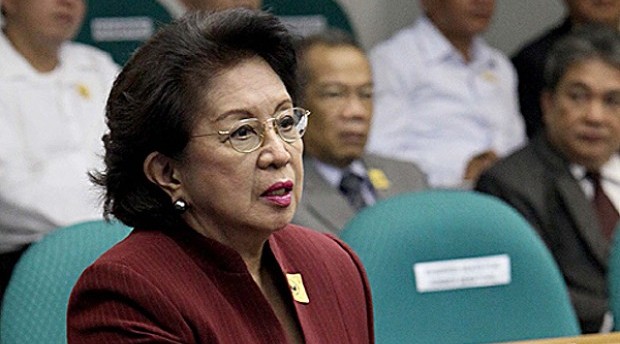Former gov’t export-import credit execs face graft raps
MANILA, Philippines—Two former officials of the Philippine Export-Import Credit Agency (PhilEXIM) have been indicted for graft by the Sandiganbayan after the government incurred losses amounting to P4.2 billion after the state-owned firm issued a loan guarantee to a private company.
The Office of the Ombudsman approved the filing of criminal charges against former PhilEXIM executive vice president Rolando Alonzo and account officer Teresita Cometa for violation of Republic Act No. 3019, or the Anti-Graft and Corrupt Practices Act.
Also indicted were Nena Ang, Alison Sy, Guillermo Sy, Derick Chester Sy and Renato Ang, shareholders of World Grannary Inc. (WGI).
In a statement, Ombudsman Conchita Carpio-Morales said Alonzo and Cometa were responsible for the approval of a P1.8-billion guarantee facility that WGI received in December 2003 from PhilEXIM, formerly known as the Trade and Investment Development Corp. of the Philippines (Tidcorp). Tidcorp was earlier called the Philippine Export and Foreign Loan Guarantee Corp.
“It was the duty of Cometa and Alonzo to thoroughly evaluate and study the account of WGI and, based on evidence, (they) were the ones who supplied the (PhilEXIM) board with erroneous, fraudulent and incomplete information which were used as the basis for approval (of the guarantee facility),” Morales said.
Article continues after this advertisement“Cometa and Alonzo were directly responsible for the implementation of credit policies, credit evaluation, credit approval, documentation, credit administration billing and the collection process with respect to the WGI account,” he added.
Article continues after this advertisementPhilEXIM, a state agency tasked to help spur economic development by promoting and facilitating foreign loans and international trade, approved WGI’s credit guarantee payable in 10 years under certain loan conditions.
As part of the agreement, the Ombudsman said PhilEXIM stood as the guarantor when WGI was able to secure a “bridge loan” from the Dutch bank ABN-AMRO.
However, WGI failed to make its first interest payment to the foreign bank three years later, forcing PhilEXIM to settle the private company’s loan liabilities.
Morales said the PhilEXIM management discovered several anomalies in the agreement with WGI following an audit of the transaction.
By the end of February 2012, the Ombudsman said PhilEXIM had already spent P1.87 billion to pay WGI’s credit liabilities to the foreign bank.
Because of this, the antigraft body said a total of P4,228,391,731.60 in public funds was lost in the payment of interest, advances, penalties, service charges, gross tax receipts and foregone revenue.
